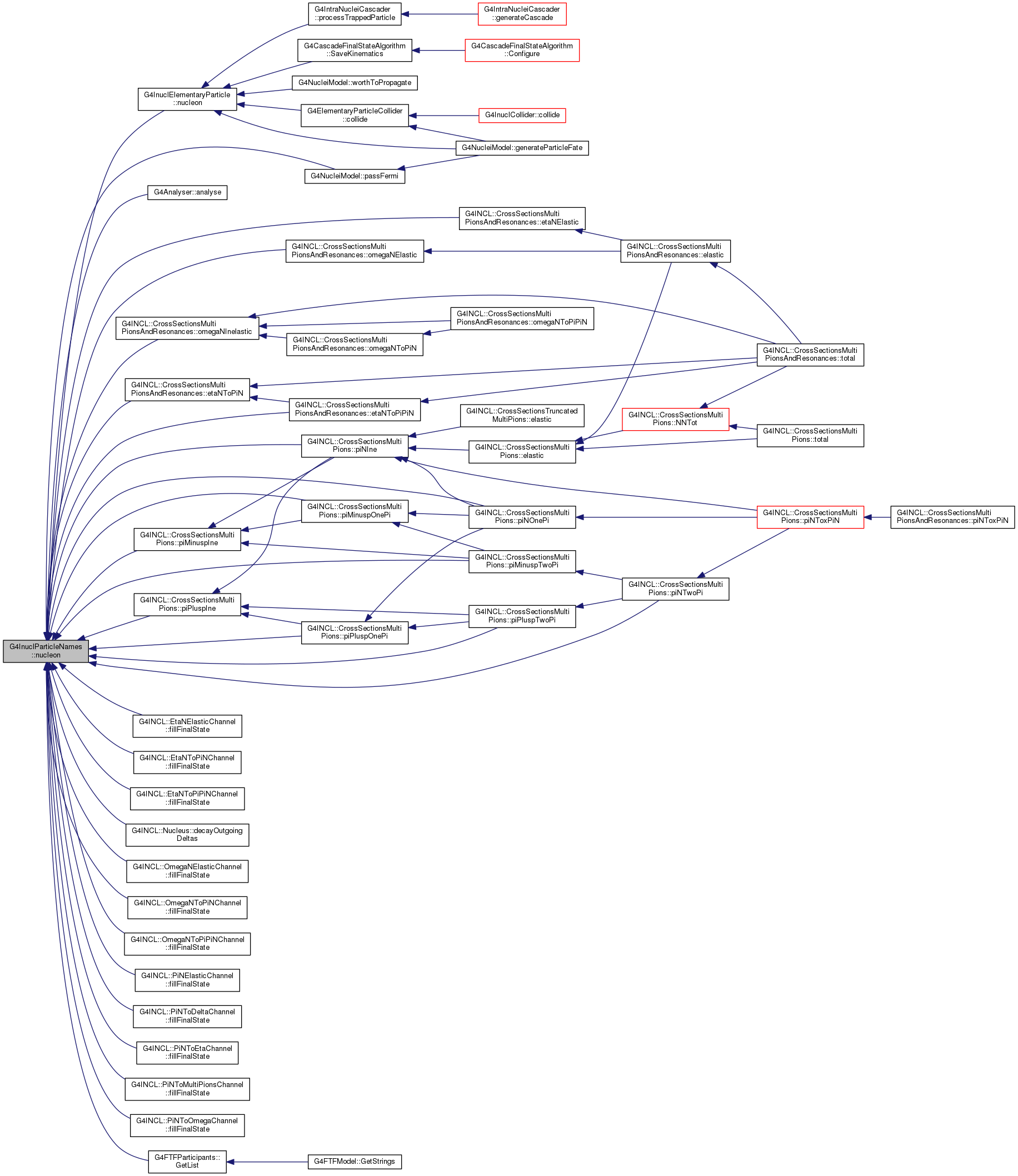|
Geant4
10.03.p02
|
|
Geant4
10.03.p02
|
Enumerations | |
| enum | Long { nuclei =0, proton =1, neutron =2, pionPlus =3, pionMinus =5, pionZero =7, photon =9, kaonPlus =11, kaonMinus =13, kaonZero =15, kaonZeroBar =17, lambda =21, sigmaPlus =23, sigmaZero =25, sigmaMinus =27, xiZero =29, xiMinus =31, omegaMinus =33, deuteron =41, triton =43, He3 =45, alpha =47, antiProton =51, antiNeutron =53, antiDeuteron =61, antiTriton =63, antiHe3 =65, antiAlpha =67, diproton =111, unboundPN =112, dineutron =122, electronNu =-1, muonNu =-3, tauNu =-5, antiElectronNu =-7, antiMuonNu =-9, antiTauNu =-11, WMinus =-13, WPlus =-15, Zzero =-17, electron =-21, muonMinus =-23, tauMinus =-25, positron =-27, muonPlus =-29, tauPlus =-31 } |
| enum | Short { nuc =nuclei, pro =proton, neu =neutron, pip =pionPlus, pim =pionMinus, pi0 =pionZero, gam =photon, kpl =kaonPlus, kmi =kaonMinus, k0 =kaonZero, k0b =kaonZeroBar, lam =lambda, sp =sigmaPlus, s0 =sigmaZero, sm =sigmaMinus, xi0 =xiZero, xim =xiMinus, om =omegaMinus, deu =deuteron, ap =antiProton, an =antiNeutron, ade =antiDeuteron, atr =antiTriton, ahe =antiHe3, aal =antiAlpha, pp =diproton, pn =unboundPN, nn =dineutron, enu =electronNu, mnu =muonNu, tnu =tauNu, aenu =antiElectronNu, amnu =antiMuonNu, atnu =antiTauNu, wm =WMinus, wp =WPlus, z0 =Zzero, ele =electron, mum =muonMinus, tm =tauMinus, pos =positron, mup =muonPlus, tp =tauPlus } |
Functions | |
| const char * | nameLong (G4int ptype) |
| const char * | nameShort (G4int ptype) |
| const char * | name (G4int ptype) |
| G4bool | isPhoton (G4int ityp) |
| G4bool | isMuon (G4int ityp) |
| G4bool | isElectron (G4int ityp) |
| G4bool | isNeutrino (G4int ityp) |
| G4bool | pion (G4int ityp) |
| G4bool | nucleon (G4int ityp) |
| G4bool | antinucleon (G4int ityp) |
| G4bool | quasi_deutron (G4int ityp) |
| G4int | baryon (G4int ityp) |
| G4bool | antibaryon (G4int ityp) |
| G4bool | hyperon (G4int ityp) |
Definition at line 44 of file G4InuclParticleNames.hh.
| Enumerator | |
|---|---|
| nuc | |
| pro | |
| neu | |
| pip | |
| pim | |
| pi0 | |
| gam | |
| kpl | |
| kmi | |
| k0 | |
| k0b | |
| lam | |
| sp | |
| s0 | |
| sm | |
| xi0 | |
| xim | |
| om | |
| deu | |
| ap | |
| an | |
| ade | |
| atr | |
| ahe | |
| aal | |
| pp | |
| pn | |
| nn | |
| enu | |
| mnu | |
| tnu | |
| aenu | |
| amnu | |
| atnu | |
| wm | |
| wp | |
| z0 | |
| ele | |
| mum | |
| tm | |
| pos | |
| mup | |
| tp | |
Definition at line 60 of file G4InuclParticleNames.hh.
Definition at line 116 of file G4InuclParticleNames.hh.
Definition at line 80 of file G4InuclParticleNames.hh.

|
inline |
Definition at line 77 of file G4InuclParticleNames.hh.

| const char * G4InuclParticleNames::nameLong | ( | G4int | ptype | ) |
Definition at line 39 of file G4InuclParticleNames.cc.

| const char * G4InuclParticleNames::nameShort | ( | G4int | ptype | ) |
Definition at line 92 of file G4InuclParticleNames.cc.
Definition at line 95 of file G4InuclParticleNames.hh.
